Why Building Your Startup's Brand From Day 1 Matters
Don't fall into the trap of neglecting your brand. Discover why starting early and building a strong brand foundation is crucial for your startup's long-term success.
Hi Friends 👋
Fridays keep getting better and better! I'm pumped to keep uncovering remarkable growth strategies from top startups and sharing the goods with you all 💪Thanks for riding along with us; we’re grateful!
And the best part? We hit 100 subscribers in just 24 hours on Jan 30th! 🎉
At Growthstore.xyz, we aim to give back to startups by sharing our hands-on knowledge and experiences. We believe in "learning by doing" and hope to support other founders and small business owners in their growth journey.
Whether you're just starting or looking to take your business to the next level, we're here to provide valuable insights and be a resource for you.
Let's dive into our 2nd essay and see how it can help you grow your startup! 🚀
In this blog, I'll share my experience and the lesson I learned on my journey to drive sustainable growth for a startup.
Here is what you can expect in this post:
Brand-led vs. Money-led Growth
Sustainable Growth Strategies
How to build a brand as an early-stand startup
Real-life case studies on building a brand early on
Insights from successful startups
As a startup founder and small business owner, the desire for growth and the excitement it brings is understandable 💡 But through my experience, I've learned that not all growth is created equal.🤔💭
A few years back, when I was in the early stage of Freshworks as a startup, I was challenged to grow our revenues in the US by 100% year-over-year 💰, but I quickly learned that pursuing growth at any cost 💸 can lead to disastrous consequences 😱.
With seemingly unlimited resources, I was eager to try anything that might work.
So, I invested heavily in search marketing and outbid my competitors. I dove headfirst into top-of-the-funnel campaigns without a clear audience strategy. I even adopted the advice of media account managers without applying critical analysis. And I developed a plan to take on our competitors.
But, as it turns out, everything I did worked a little too well.
The result was explosive growth beyond my wildest expectations 🔥📈
So, there I was, leading Freshworks through its growth phase. Our team was killing it, and our VCs were throwing more money at us to keep growing. I felt confident, so I thought, 'Why not go for it?'
But as it turns out, reaching for the stars too quickly comes with its own set of challenges. Aiming high is essential, but it's equally crucial to ensure that growth is sustainable, aligned with our values, and aligned with our long-term goals.
I learned that the hard way 💪, but it was all part of the growth journey 🌱
So, if you're a startup looking to drive sustainable growth, here are some things to keep in mind:
To drive sustainable growth, startups should build a solid foundation. This foundation includes a dependable business model, diverse customer segments, and adaptive sales strategies.
Chasing growth that aligns with your values and long-term goals is crucial. First, consider whether brand-led or money-led growth is the right approach for your startup.
Ensuring that your growth is sustainable involves managing risks and challenges, such as increased competition or regulatory changes. Have a plan in place to deal with them effectively.
Don't go for growth at any cost – make intelligent, well-informed decisions that align with your long-term goals.
If I could go back in time, I'd ask myself a few more questions before diving into growth:
What do we think about brand-led growth vs. money-led growth?
How is our growth sustainable over the long term?
How will we manage the risks and challenges that come with growth?
In this blog, I'll delve into the importance of considering brand-led vs. money-led growth and how to make sure your growth is sustainable over the long haul. These are essential things to consider if you want to set your startup up for success.
What is brand led-growth?
It's simple: Grow your business by growing your brand.
A straightforward logic: Right at the bottom of the funnel, when users come looking for your brand, the probability is high that they will convert to being your customer. Search is an excellent proxy that captures a prospect's intent at the middle of the funnel in the buying process.
So, let's take two keywords:
What is CRM?
Salesforce
"What is CRM" is a highly competitive word and denotes a keyword people want to know about and educate themselves about. No one is looking to buy a CRM, and that's not an intent we can gather about this keyword.
The search volume for this query has been consistently high in the last five years:
If growing traffic to your website is critical, you should do everything under the sun to get this query clicked for a visit to your website.
We also implemented this strategy in 2016, but unfortunately, we received very few or no sign-ups for our product. As a result, our call to action on the page seemed overly ambitious, leading to these disappointing results.
Let's compare this with 'Salesforce.'
Dang, "Salesforce" gets searched 50 times more than "What is CRM"!
It's crazy how having a strong brand can make you dominate your industry and crush the competition. Salesforce has worked hard for over 20 years to build its brand, which has paid off big time!
They've got a unique identity that sets them apart from other companies. It's not just about being memorable; their strong brand also influences consumer decisions. Pretty impressive, right? The most important thing I learned is that if you're looking to crack inbound, you must check out what your top competitors are doing. Understanding their strategies and keywords is crucial to rank well in search results.
We aimed to outrank Salesforce for the keyword "what is CRM." Unfortunately, when we put all our effort into getting it ranked, we were 94th on SERP, but in just a couple of months, we reached 2nd position.
To win that battle, here's what we did:
We focused on organic traffic and got a spot on the first page of the search engine results page (SERP).
We even started a blog on Medium, sharing our own customer stories as a way to connect with our audience and provide valuable insights. It also served as a link to our website, driving more traffic and engagement.
We shared valuable information about the benefits of a CRM, even for people who weren't necessarily looking to buy one.
We showed how a CRM could be integrated with another tech stack, like email, to give you basic marketing automation capabilities.
By being a helpful resource, we built trust and credibility with prospects. That way, they'll return to us when they're ready to consider a CRM for their business.
So if you're a startup founder —uncover your competitors' secrets—the importance of identifying top-ranking pages in search results.
Why a Strong Brand is Essential: A Summary of Key Points and Examples in the Table Below
While building a solid brand is beneficial, it's also important to note how it can help convert prospects into paying customers for a business operating for 5-8 years.
What can startups do to build a strong brand?
Learn from successful startups by looking at some of their branding tactics in the table:
By implementing some of the tactics listed in the table above, you can start building a solid brand from the very beginning without breaking the bank.
It may take time and effort, but the results are worth it.
As a newcomer in a red ocean market selling software to businesses, you may be wondering how to stand out and convert more customers 🚀🚀
Imagine this scenario: you've been working hard to drive traffic to your website, and you've managed to get 100 sign-ups through non-brand keywords. But when it comes time to convert those leads into customers, only two make a purchase. That's a low conversion rate. Now let's compare that to another scenario where you focus on building your brand and getting 50 sign-ups through your brand. In this case, you might see a higher conversion rate - say, 7 of those 50 sign-ups become customers. That's a much better result! And it's easy to see why - a strong brand helps establish credibility and trust with potential customers, which can increase their likelihood of making a purchase.
But it's not just about conversion rate. Building a solid brand can help lower your acquisition cost. If your customer acquisition cost is around $1000, focusing on attracting customers through your brand could reduce that cost by $100 per customer. That's excellent news for your bottom line and business.
How to build a strong brand on a shoestring budget?
It's tough, but it's doable 💪🏽💪🏽
You just must invest in things that will build equity for your brand. That way, you can create a robust and trustworthy reputation that'll pay off in the long run.
Now, here are some ways to do it:
Use social media to increase brand awareness and build relationships
Create valuable content to establish expertise and attract a loyal following
Collaborate with other businesses or influencers to increase reach and credibility
Encourage customer reviews to build trust and credibility
Focus on creating value and building relationships to establish a strong brand
From "Ripoff or Not" to Dreamforce: How Freshworks Built a Brand in a Crowded Market
Case Study 1: Back in the day, Freshworks launched the "Ripoff or Not" campaign that put Freshdesk up against Zendesk. By showing the benefits of Freshdesk and the cost savings, Freshworks made a bold statement against the incumbent. The aggressive social media push not only bought mindshare, but it also helped establish credibility and trust with potential customers. The result? People remembered Freshdesk and were more likely to make a purchase. All in all, an intelligent move that gave a head start to growth!
Case Study 2: In 2016, Dreamforce was abuzz with tech enthusiasts and Salesforce users, all converging on San Francisco for the biggest CRM event of the year. With over 180K attendees, the pressure was on for companies to make their mark and steal some of the spotlights from the host. And that's exactly what Freshsales, a new CRM for high-velocity sales teams, did. They launched a bold and humorous campaign called "Sorry We Didn't Launch Earlier." This attention-grabbing move not only set Freshsales apart from the rest but also showed that they were confident and unafraid to take on the established players in the market. In a sea of exhibitors, Freshsales made a splash and created a memorable moment at Dreamforce that year.
By executing these smart campaigns, Freshworks was able to establish a strong connection with its customers and build a solid brand reputation. The campaigns resulted in increased conversions, lower customer acquisition costs, and a better image in the minds of potential customers.
Freshworks understood the importance of building a solid brand and focused its efforts in that direction. Their strategy paid off, leading to a more successful and recognizable brand.
And if you're looking to build a brand for your startup, take advantage of our comprehensive list of 20 essential strategies. These strategies will help you stand out and succeed in a crowded market like Freshworks. So, dive in and discover the secret sauce to building a solid brand with purpose-driven impact.
20 Brand-Building Strategies: Balancing Objectives and Purpose
Leverage Personal Brand - "Shape Image"
Define Purpose - "Clarify Why"
Consistency - "Build Trust"
Foster Relationships - "Gain Loyalty"
Utilize Social Media - "Increase Awareness"
Provide Value - "Gain Followers"
Collaborate - "Increase Credibility"
Encourage Reviews - "Build Trust"
Focus on Value - "Establish Relationships"
Partner with Respected Brands - "Boost Credibility"
Utilize Testimonials - "Showcase Credibility"
Use Storytelling - "Create Unique Proposition"
Offer Free Trials - "Show Value"
Become an Expert - "Establish Credibility"
Utilize SEO - "Increase Visibility"
Invest in Design - "Create Cohesive Image"
Exceptional Service - "Positive Experience"
Listen to Audience - "Understand Needs"
Leverage Podcasting - "Share Values"
Be Fun and Empathetic - "Establish Strong Brand"
Growth and revenue are essential for startups, but we must consider how we're making that happen. For example, cutting discounts or outbidding the competition might bring in some cash now, but it can hurt our brand and lose us customers in the long run.
Here are five common mistakes that startups make when building their brand:
Failing to define its brand identity and messaging clearly
Neglecting the importance of consistency in branding and messaging
Failing to foster customer relationships and build brand loyalty
Over-indexing on paid marketing campaigns at the expense of organic growth strategies
Refrain from focusing on creating value and building relationships with customers.
Building a strong and sustainable startup brand requires a focus on creating value and developing customer relationships.
In the end, having a solid brand is essential for a startup's long-term growth. It helps you establish credibility, stand out from the competition, earn customer loyalty, and boost your startup's value.
As the saying goes:
"Your brand is the most important investment you can make in your business."
So, it's essential to prioritize your brand as you grow your startup from Day 1.
So, it's essential to prioritize your brand as you grow your startup from Day 1.
Sure, money-driven growth strategies might bring short-term gains, but they're only sometimes sustainable in the long run.
If you focus on growing your brand, you're setting yourself up for long-term success and a strong foundation for future growth.
In other words, you're playing the long game, and that's always a good thing for a startup 🎯



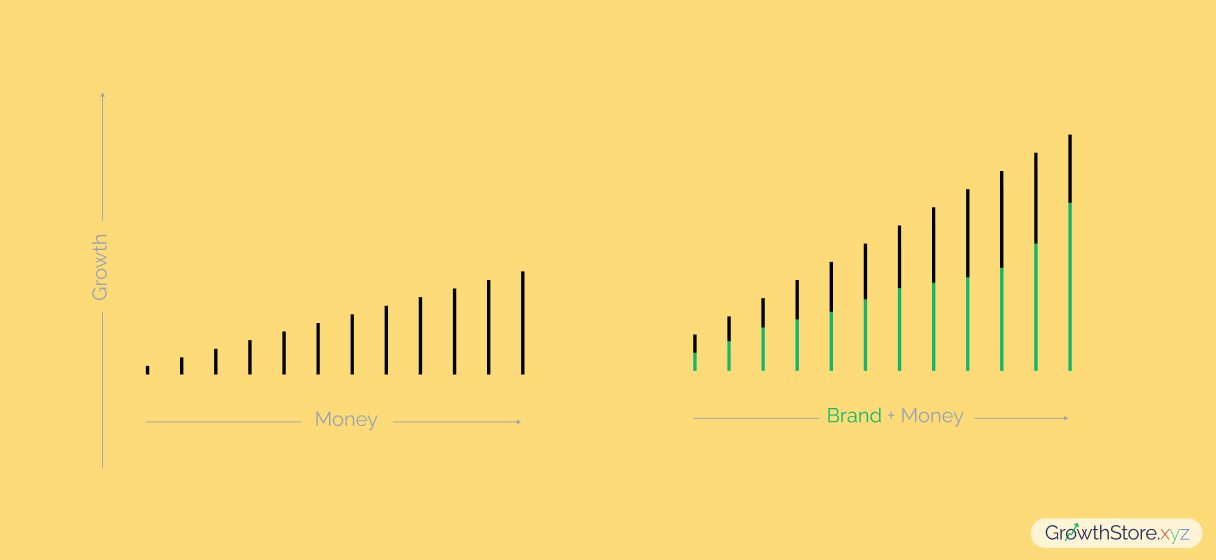


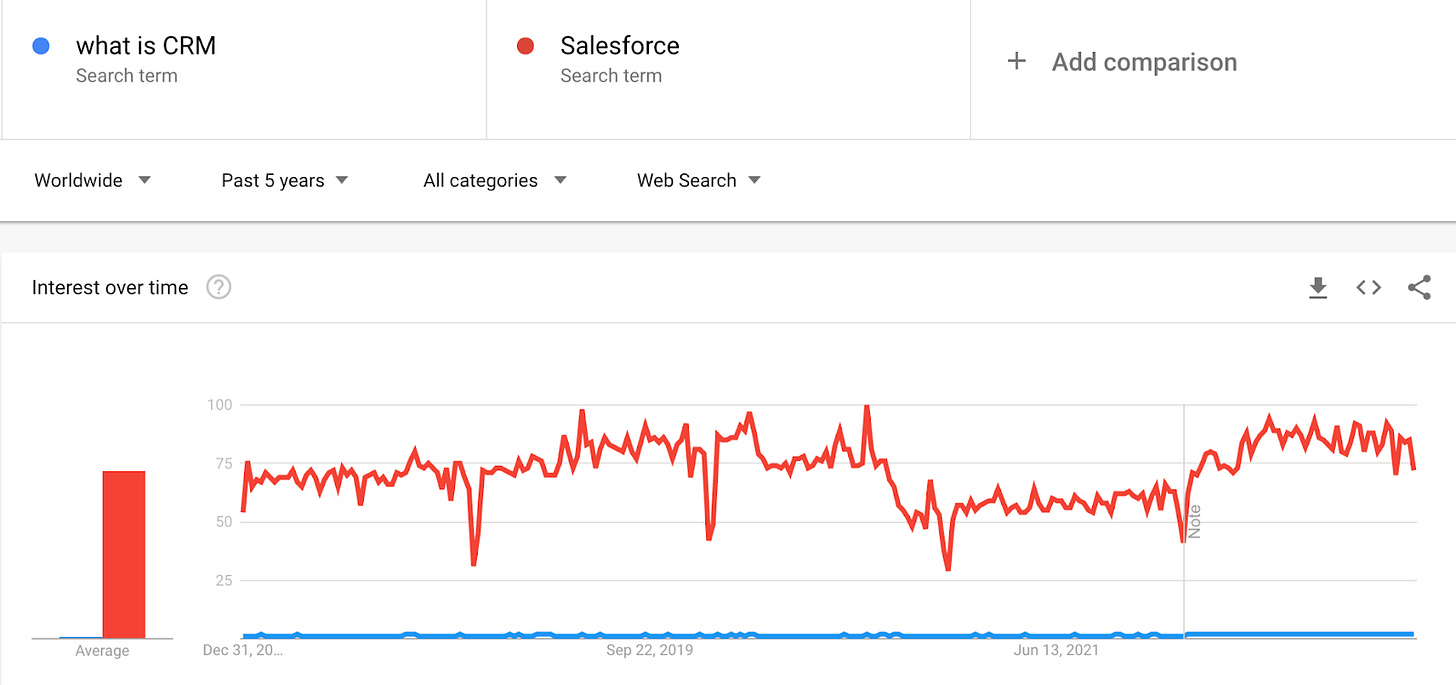
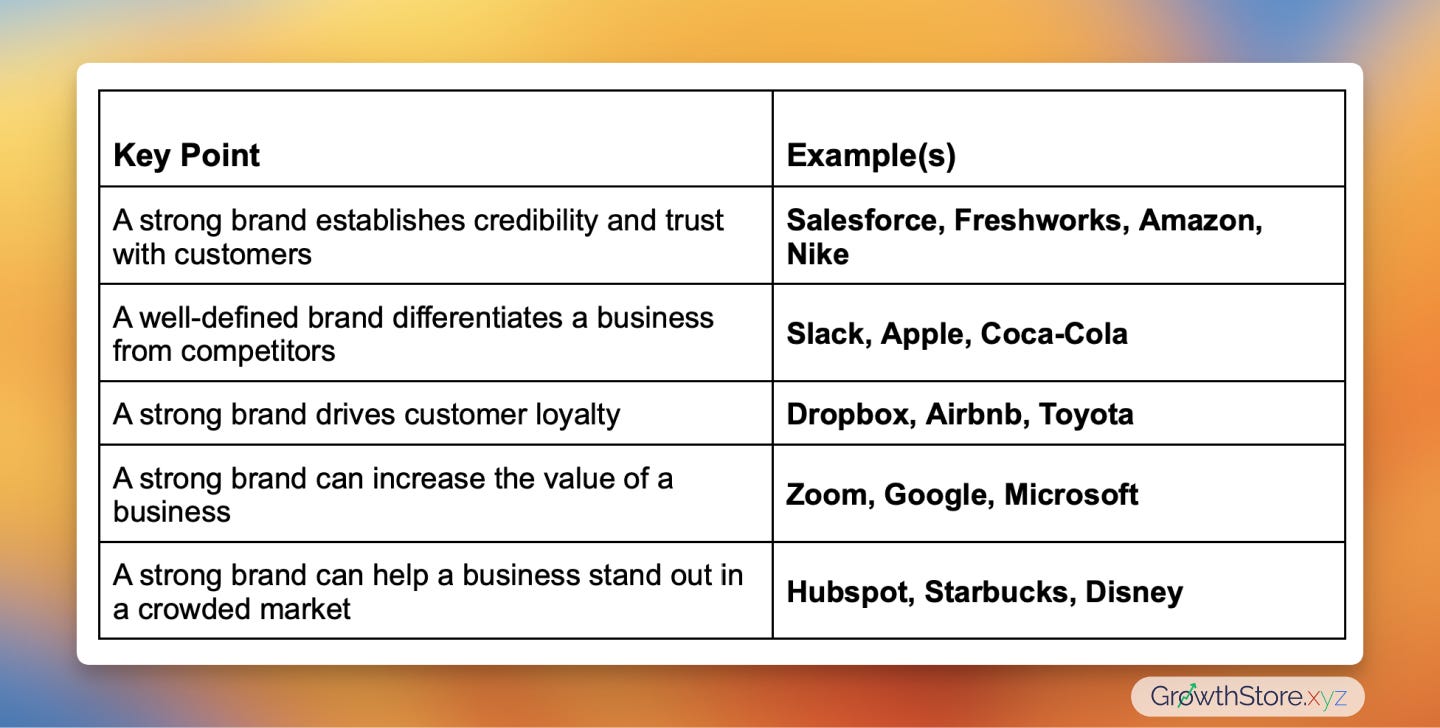

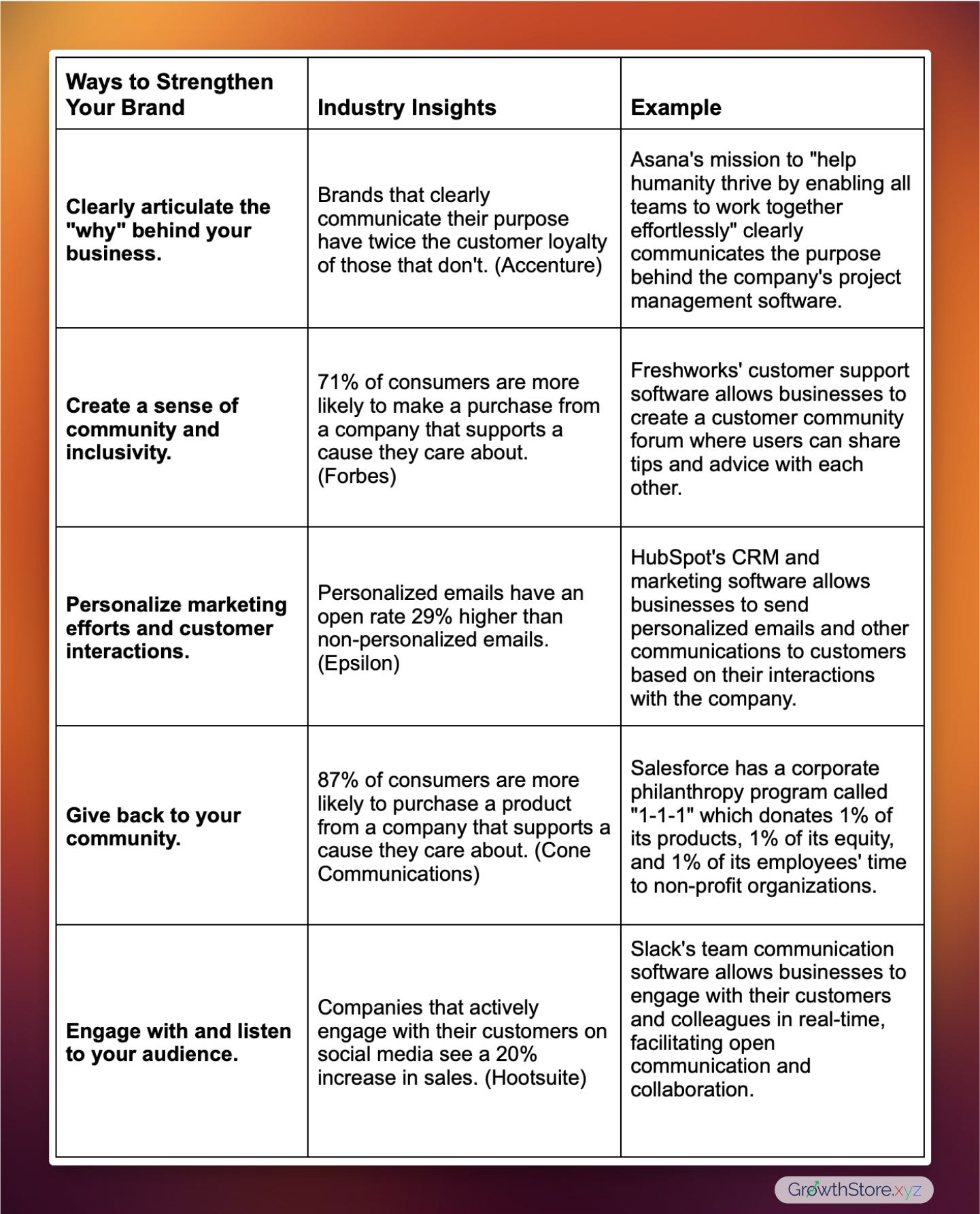



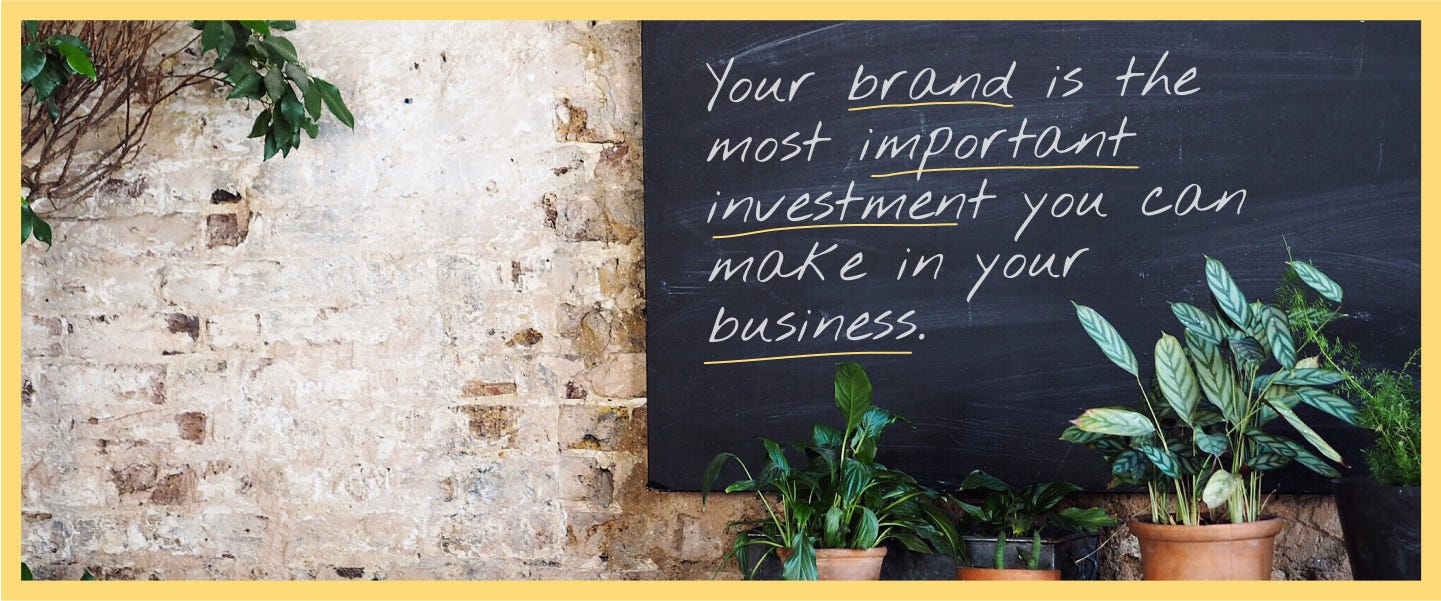

Thanks for sharing!
A great article! In the age of heavy investment into paid campaigns, the Freshsales story is a great example of how getting your basics right can help startups achieve unprecedented growth and brand recognition. As a marketer with a previous background in the enterprise space I had an opportunity to venture into startup space with Freshsales. Gave me a practical experience into how quality content and well thought out SEO strategy can help not just build brand recognition but also help compete effectively in a cluttered market with well established giants like Salesforce. Thanks for sharing these insights. Good learning. Looking forward to more.